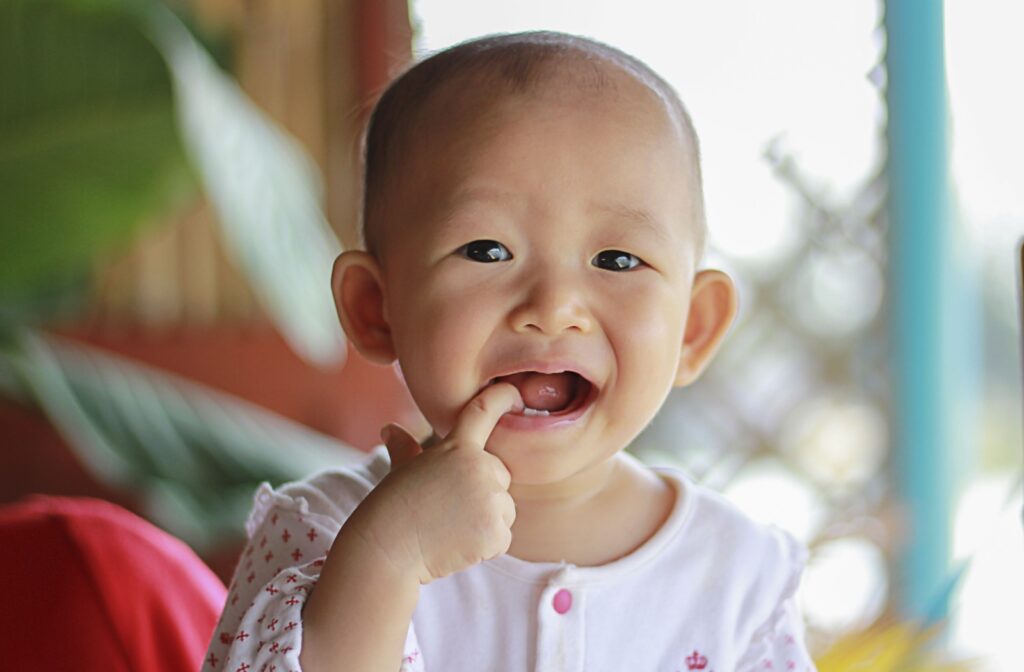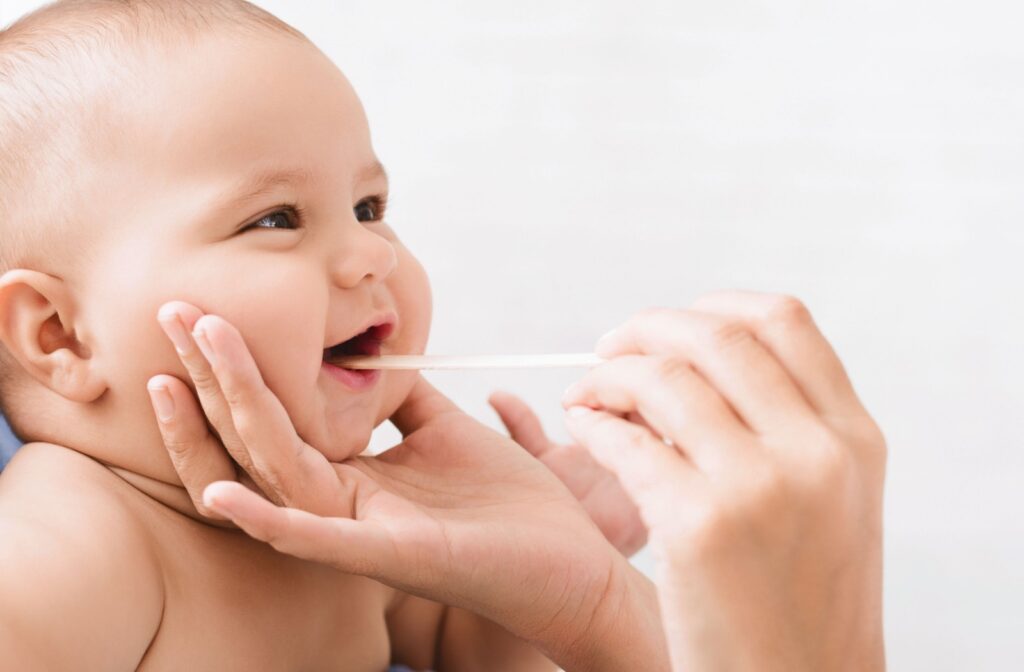
From the moment your child’s first tooth appears, dental care becomes essential. Paying attention to their teeth is the key to healthy smile development. However, sometimes your baby may begin unusual habits—like grinding their teeth. Why do they do this?
Babies grind their teeth for several reasons, including teething discomfort, stress, or simply as a reflexive action while they grow. In most cases, this habit stops once their permanent teeth emerge. If you notice any signs of discomfort, pain, or dental damage, visit an experienced paediatric dentist in your area.
Why Babies Grind Their Teeth
Teeth grinding, or bruxism, is a natural response—it develops due to all kinds of triggers. Usually, this habit develops due to:
- teething discomfort as new teeth push through sensitive gums
- stress, overstimulation, or a shift in their daily routine
- natural reflexes or developmental phases as their jaws grow and muscles strengthen
- underlying issues like jaw misalignment or an ear infection
- the need for sensory stimulation as their senses develop and they explore the world around them
If you notice your baby is constantly grinding their teeth, try not to panic. Though this habit can be concerning at first, it does not usually cause any significant problems. Teeth grinding is simply a phase they will naturally outgrow.
For babies, grinding teeth is a stimulating motion. It helps soothe irritated gums, especially while sleeping. This habit is just your baby’s way of coping with the discomfort of teething and overall development.
The Risk of Teeth Grinding for Babies
Occasional grinding is often harmless. However, there are some situations where grinding teeth can be problematic. It helps to pay attention to your baby’s dental habits—this lets you spot potential problems before they progress any further.
One common concern is the gradual wearing down of tooth enamel. Baby teeth are naturally softer than adult teeth, so repeated grinding can eventually weaken the enamel. This could eventually lead to jaw discomfort, sensitivity, gum issues, and more.
Excessive grinding can lead to problems such as:
- cracked or chipped teeth
- increased tooth sensitivity
- difficulty chewing or eating
- jaw pain or tension
- damage to dental fillings or crowns
- sleep disturbances due to discomfort
If left unchecked, teeth grinding could even affect future tooth alignment, which may cause biting or chewing problems. Monitor any changes in their dental habits, and visit an experienced dentist if you have any concerns.
When to Visit a Dentist About Teeth Grinding
Teeth grinding in babies may not always require treatment, but some signs indicate the need to see a dentist. Try watching for:
- visible wear or damage to your child’s teeth
- noticeable jaw pain or discomfort
- difficulty chewing or biting food properly
- signs of disrupted sleep or excessive fatigue during the day
- any unusual dental habits or changes in their bite alignment
Frequent grinding noises during sleep or visible wear both indicate a growing problem. By addressing these issues early, a dentist can help your child’s teeth develop properly. Issues like jaw misalignment and shifting teeth can be complicated, and preventive measures are often easier—and cheaper—than future treatments.

How to Stop a Baby From Grinding Their Teeth
Preventing teeth grinding can be a great way to find peace of mind. While it may not always be possible to stop the habit entirely, you can effectively slow how much your baby grinds their teeth. Through these strategies, you can ease teeth grind habits:
- offer a cold teething toy or washcloth to soothe teething-related discomfort
- establish a calming bedtime routine to reduce stress & overstimulation
- avoid sugary snacks or beverages before bed to protect dental health
- ensure your baby stays hydrated to minimize unnecessary irritation
- provide plenty of tactile stimulation during the day to satisfy sensory needs
Comfort should be the core focus here. You want to reduce how much your baby feels stressed or uncomfortable. These habits can make a significant difference!
If you notice your baby keeps grinding their teeth, even when comfortable, contact an experienced paediatric dentist near you. Excessive grinding is often a sign of an underlying issue, and a dental care professional can narrow down the possible causes.
Working Together Toward Healthier Smiles
Taking small steps to address teeth grinding now is important. It builds the foundation for your child’s healthy growth and development. Proactive care can make all the difference in the world—and our team at The Children’s Dental Centre is here to help you.
Here, we know the value of early intervention. Your child deserves a healthy future smile, and we can help make this a reality. Contact our team today to book an appointment, and together, we can work together to help your child!

